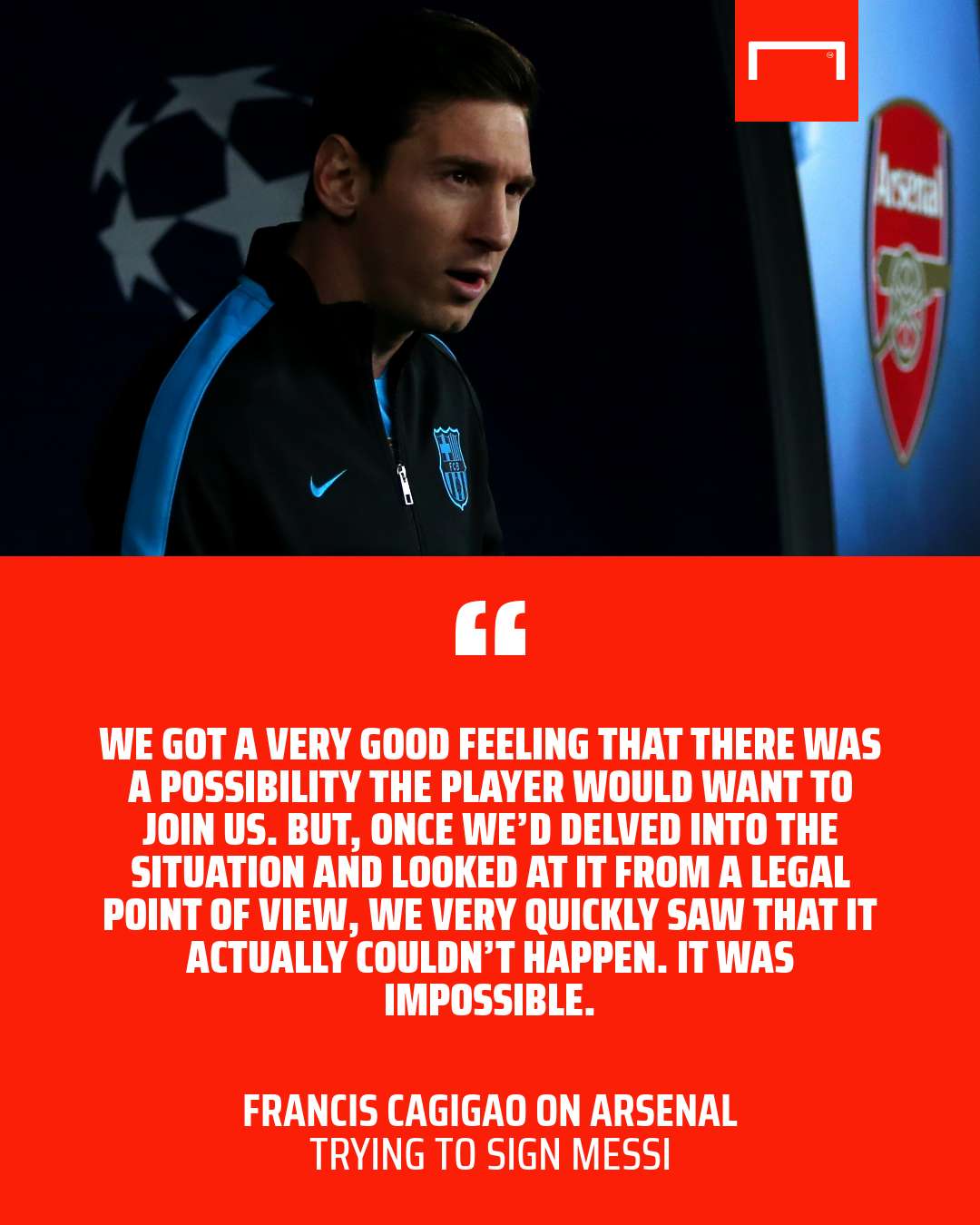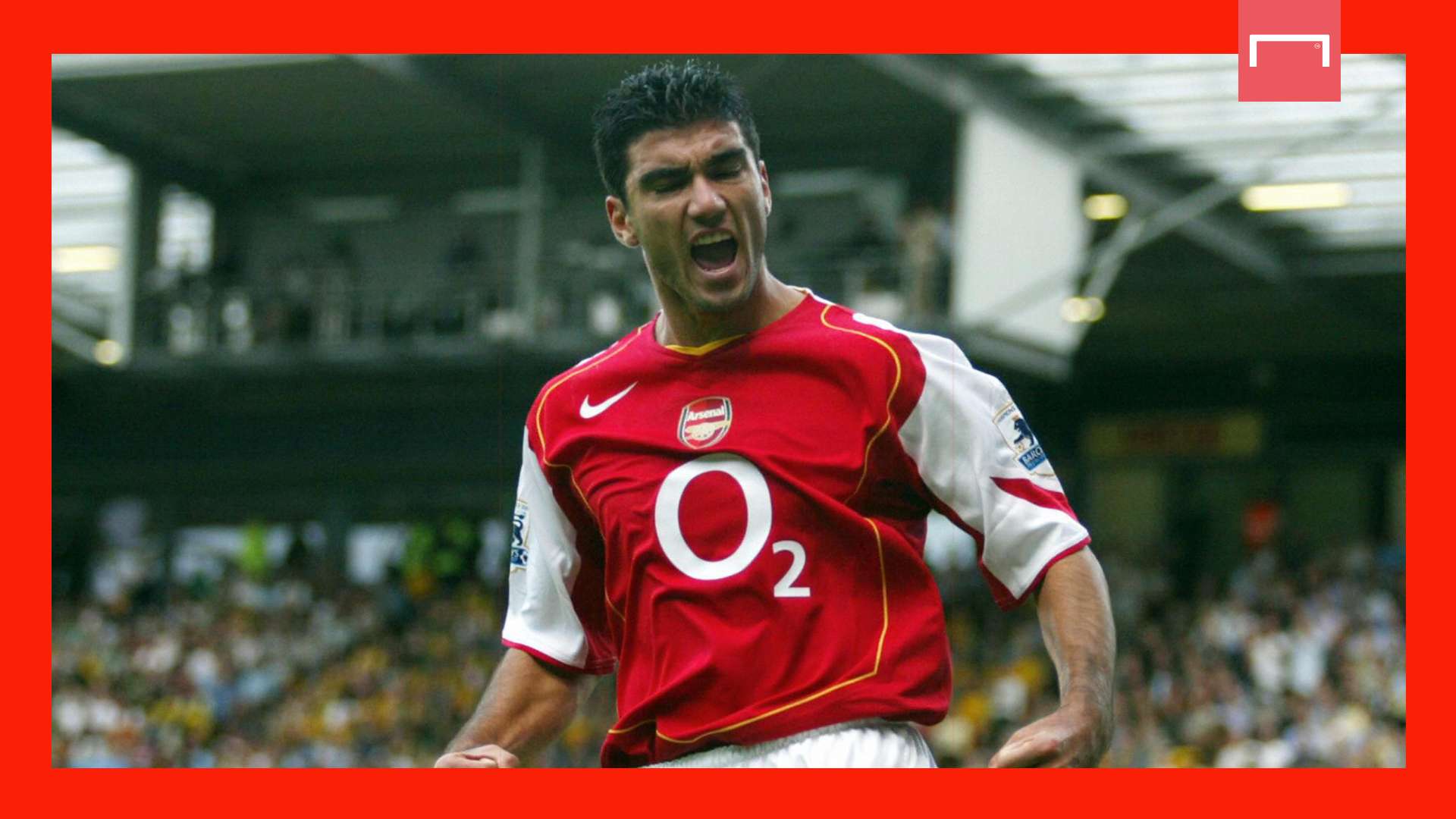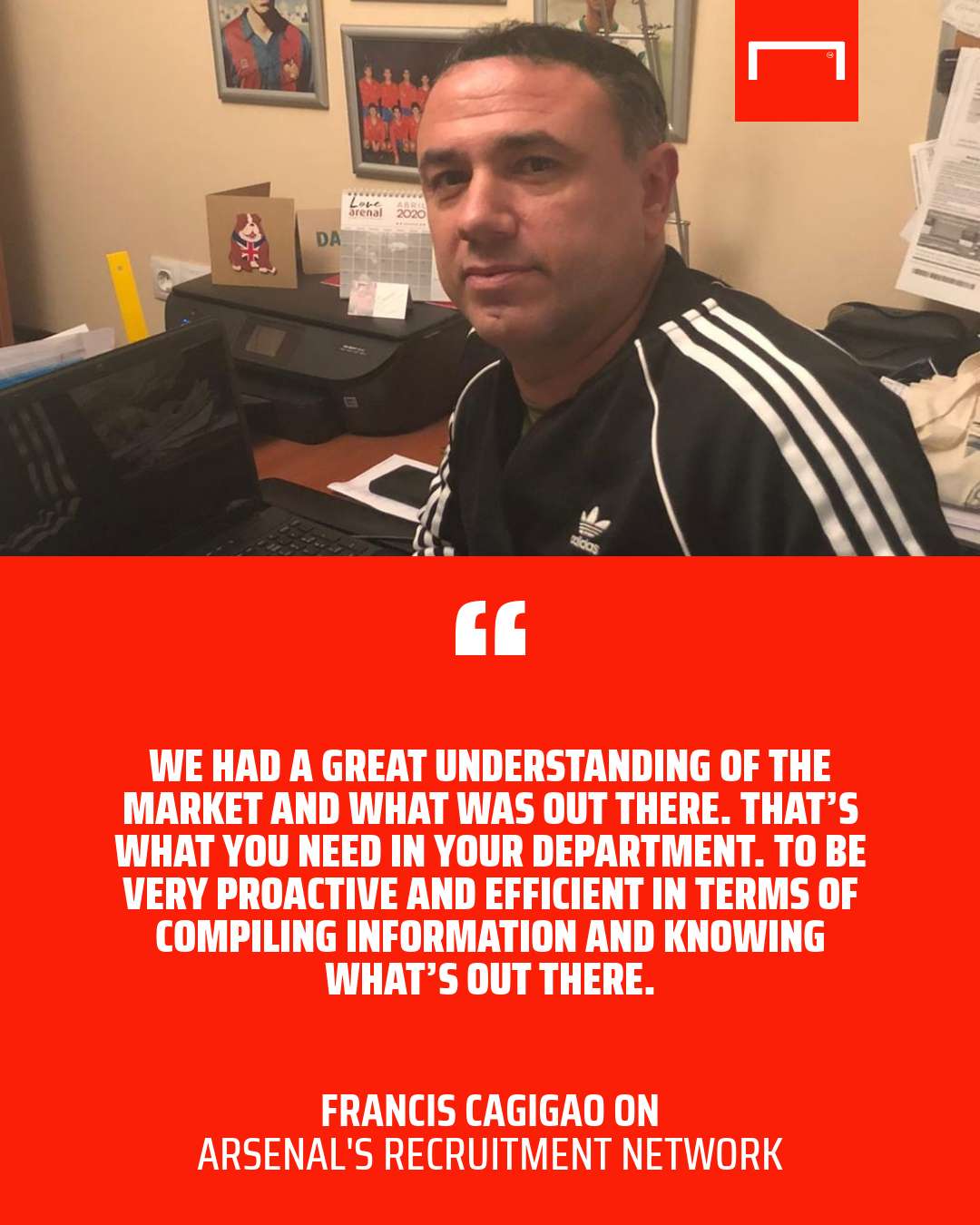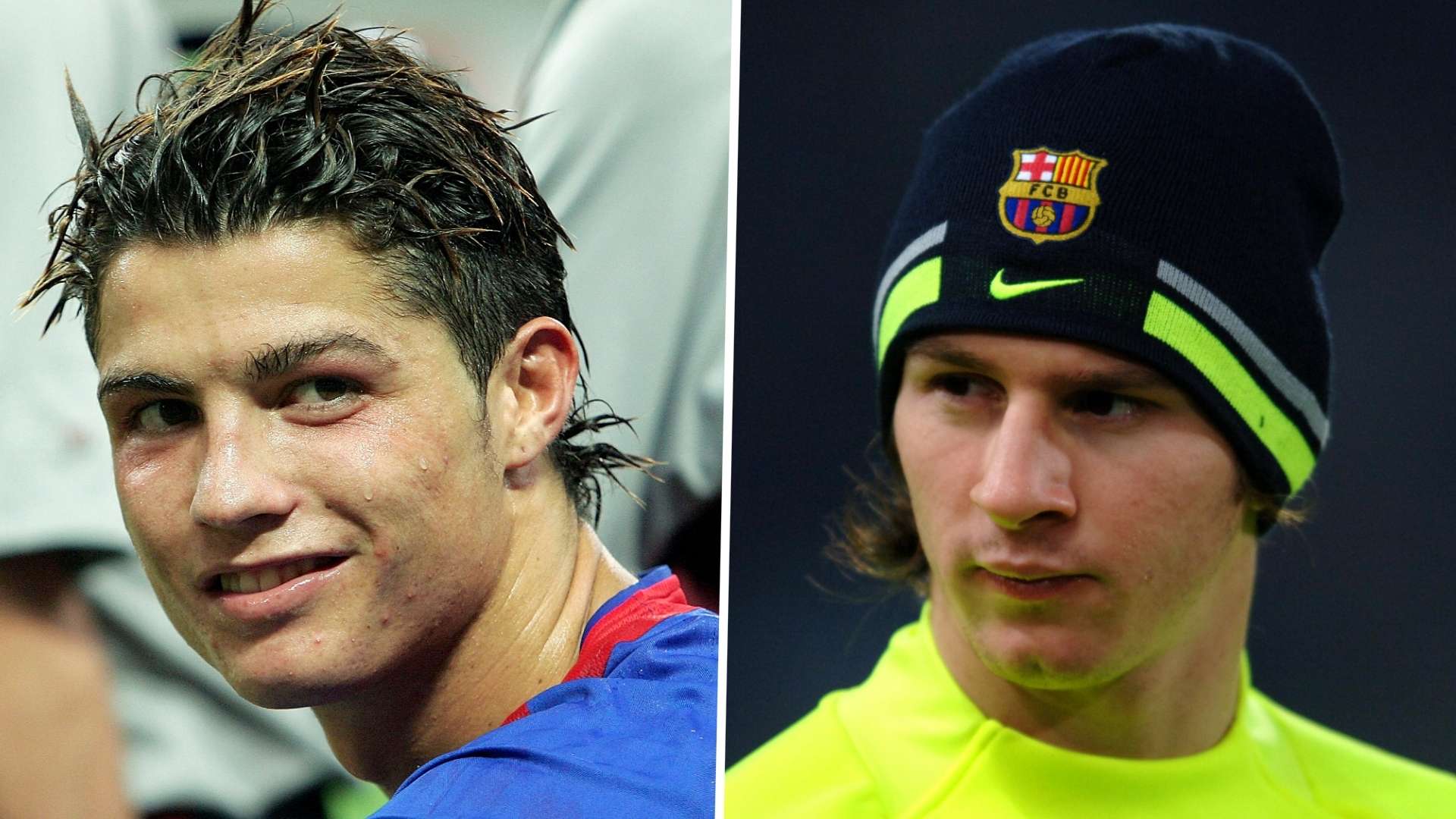Having spent the past 24 years of his life trying to unearth the next superstar while working for Arsenal, Francis Cagigao has seen his fair share of exceptional young teams around the world.
But there is one side that sticks out; in fact, it’s a side he’s previously labelled as the greatest U16s team he’s ever seen.
And that is perhaps no surprise, as Arsenal’s former head of global recruitment was talking about the legendary La Masia line-up which included Lionel Messi, Cesc Fabregas and Gerard Pique.
It was a team that Cagigao watched closely in his old role as the Gunners' chief scout in Spain – and one he did his best to split up.
Indeed, Cagigao tried to sign all three budding superstars and Fabregas eventually agreeing to move to north London in 2003 – but, at one point, Messi and Pique also looked set to join the Gunners.
Next Match
“We had identified Messi and we wouldn’t have been the only ones,” Cagigao revealed to Goal. “I remember there were a couple of Italian clubs and obviously Spanish clubs who were very aware of Messi.
“But he couldn’t play national level because of the restriction on his status in the country at the time. He could only play regional games for Barcelona.
“So, yes, there were talks between myself and representatives, and we got a very good feeling that there was a possibility that the player would want to join us.
“But, once we’d delved into the situation and looked at it from a legal point of view, we very quickly saw that it actually couldn’t happen. It was impossible. So, that was discarded once we saw that.”
The legal issues Cagigao refers to revolve around work permits. But whilst that was a problem that stopped Messi making the move to Arsenal, there were no such issues with Pique.
For a time, the defender looked certain to be making the move from Spain alongside Fabregas, only for the deal to collapse at the last moment.
“We were already well down the line with [Pique] but, in the end, we were able to sign only Cesc,” Cagigao said.
“With Gerard, there was a difference of opinion contractually and he joined Manchester United six months after that.”

Cagigao – who started out as a part-time scout at Arsenal in 1996 and progressing to head of global recruitment before leaving the club last month – has seen lots of other near-misses in the transfer market.
Indeed, Cristiano Ronaldo could easily have become a Gunner before leaving Sporting CP for Manchester United in 2003.
“That was very close to happening,” recalled the 50-year-old. “Obviously, he was a player we had looked at a lot at youth level.
”We’ve always had a very strong network but it's one thing knowing about a player; it's another thing being able to sign a player. They are two completely different things.
“But we had a great understanding of the market and what was out there. That’s what you need in your department. To be very proactive and efficient in terms of compiling information and knowing what’s out there.”
While there were players the club couldn’t manage to land, there were plenty recommended by Cagigao and his team who did end up at Arsenal.
From Lauren in 2000 to Gabriel Magalhaes this summer, the list over the past two decades is vast and included names such as Jose Antonio Reyes, Nacho Monreal, Santi Cazorla, Robin van Persie, Gabriel Martinelli and William Saliba.
All were scouted through countless hours of work, which included watching games, networking and delving into the mental side of all the players who had been targeted.
Then, if the club gave the move the green light, it was about getting a deal done as swiftly as possible.
“I wouldn’t say any of them were simple,” Cagigao explained. “You need to convince externally, internally, and you need to go about things in as much of an ethical manner as you can.
"You need to make sure that you are within guidelines and you need to do these things with as much speed and silence as possible; otherwise, they don’t get done.
“It would be preposterous to talk about cloak-and-dagger operations, that’s more to do with other sectors, but you need to be quick and you need to do things in a very dynamic fashion to get these things over the line.”

One of the most high-profile signings early on in Cagigao’s time at the club was the capture of Reyes from Sevilla.
The attacker joined as a 20-year-old and arrived half way through the 2003-04 'Invincibles' season. Reyes announced himself in style with two goals against Chelsea in the FA Cup and went on to make 21 appearances in all competitions that season as Arsenal won the Premier League title.
He would stay for two more years, but homesickness plagued his time in north London and having spent the 2006-07 season on loan with Real Madrid, he joined Atletico Madrid permanently in 2007.
“Jose Antonio was a fantastic football talent,” said Cagigao. “We were close to signing him a few years before. I’d watched him at youth level and he was outstanding.
“I think we agreed that even though the fee would have been next to nothing, there were some issues there in terms of how he would adapt.
“So, we did it a few years later. It was complicated because there were language barriers and cultural barriers. The club thought that that it would be hard work but that we would get there with him.
“He had some marvellous attributes and made an incredible start. A lot of people don’t see how difficult it was for a young player to come in and be a starter, and play regularly, in that 'Invincibles' team that was full of top, world-class, experienced players.
“Just to do what he did in that first two seasons, was a very big achievement for such a green 19-year-old whose family had some difficulties adapting to the environment and the culture.”
Santi Cazorla was another player to make the move to north London following Cagigao’s recommendation.
Cagigao initially advised the club to bring in the Spaniard during the summer of 2011, but a deal could not be done. Cazorla did arrive a year later, however, and went on to become one of Arsenal’s finest players in recent times.
“A magical footballer, I think that’s probably the best way to describe Santi,” Cagigao said.
"Santi is a player I’d known about for a number of years, I followed him closely. There was a point when he was at Oviedo where I had got to know his representatives very well.
"He joined Villarreal, but I’d always kept in touch with that situation because I knew it was something I had to keep my eye on.
"The season we sold Cesc and Samir Nasri, I strongly recommended two Spanish players to come in; one was Santi, but for one reason or another it didn’t happen that summer.
"But I think we were lucky in the end, we saw that Malaga had these financial difficulties and talking to Santi’s representatives I got the impression they were very willing to start over and see if there was the possibility again.
"Once we had that discussion with Arsene and Steve [Rowley, chief scout] we saw very quickly we were in a position where we could do it and we brought him in.

“Very quickly Santi won everyone over. Not just because he was an exceptional footballer, but because of his personality. He played football with a smile on his face. I think he is the perfect footballer.
“We might not have won leagues during this period, but fans undoubtedly got to enjoy Santi Cazorla as a football player because if you don’t enjoy Santi as a football player, you don’t enjoy football.”
The impact Cagigao had at Arsenal during his 24 years at the club can’t be underestimated. That is why his departure last month – which came following a review of the recruitment network carried out by technical director Edu – caused so much surprise.
But the work he has done in the past few years will ensure that Mikel Arteta's current squad will continue to bear the fruits of his labour for some time yet.
It was Cagigao who drove the deal to sign Gabriel Martinelli from Ituano last year and he also pushed for the club to bring in defenders William Saliba and Gabriel during the past two summer transfer windows.
"Martinelli was a player my Brazilian scout had seen at youth football and knew him from his time at Corinthians as an U14s player," Cagigao said.
"He came onto my radar. There were doubts about him at the time; he had been to Manchester United on trial and it hadn’t worked out.
"The first time I saw him was on a few videos and he had two or three attributes which I thought were absolutely outstanding and I had to get over and watch him.
"I tried to do a deal to bring him in on trial, to see if we could watch him at our training ground, but this was impossible because Ituano were very close to blooding him in the first team.
"So, it was a case of watching him in Brazil. We watched him extensively and I was very impressed with what I saw. I knew his representatives from a long time back and then, after that, it was just a question of getting the deal done.
"But it was evident from the start that he had the hunger to succeed. He had pace, could repeat high intensity, he had good technique on his right foot and a smell for taking up goalscoring positions.
"He was competitive, wasn’t the biggest, but had a good jump. He was a player who wanted to go in behind and, after meeting the boy, I was very impressed with his mentality.
"There was such intensity in everything he did. It’s credit to him and only him because he’s the one that’s forced people to put him on the pitch.”
On the recent additions of Saliba and Gabriel, Cagigao added: “They are young players and still have a lot to learn, but they are under a perfect coach to learn and to bring on their game.
“There’s a very good chance that they will go on to succeed and become top players. I think they are players with very, very high levels of potential, who are going to be working with a very, very good coach.
“Mikel had a great apprenticeship and had a great experience working under Pep Guardiola and he’s taken on a lot of those ways of working and adapted it to his personality and character.
“He’s played for the club and somebody who I think is an ideal fit for the club as a manager. I think he will do very well.”


